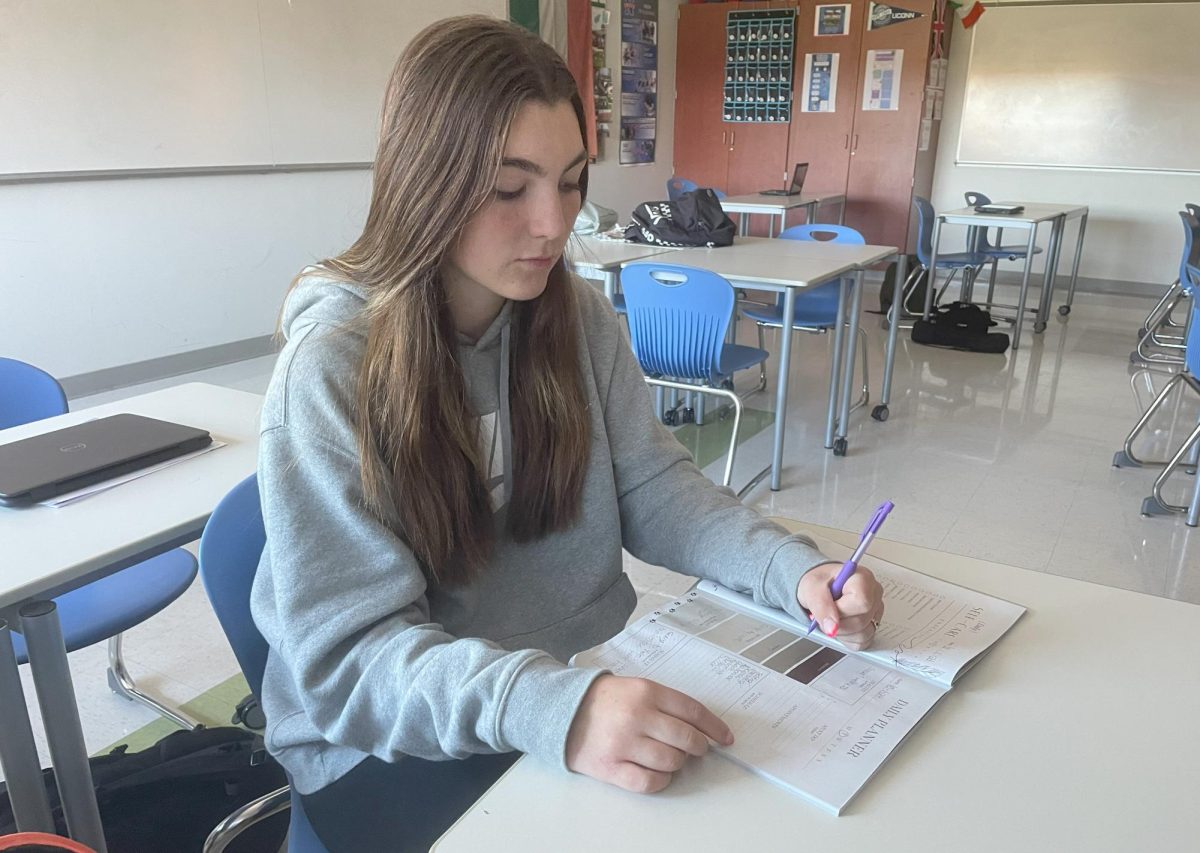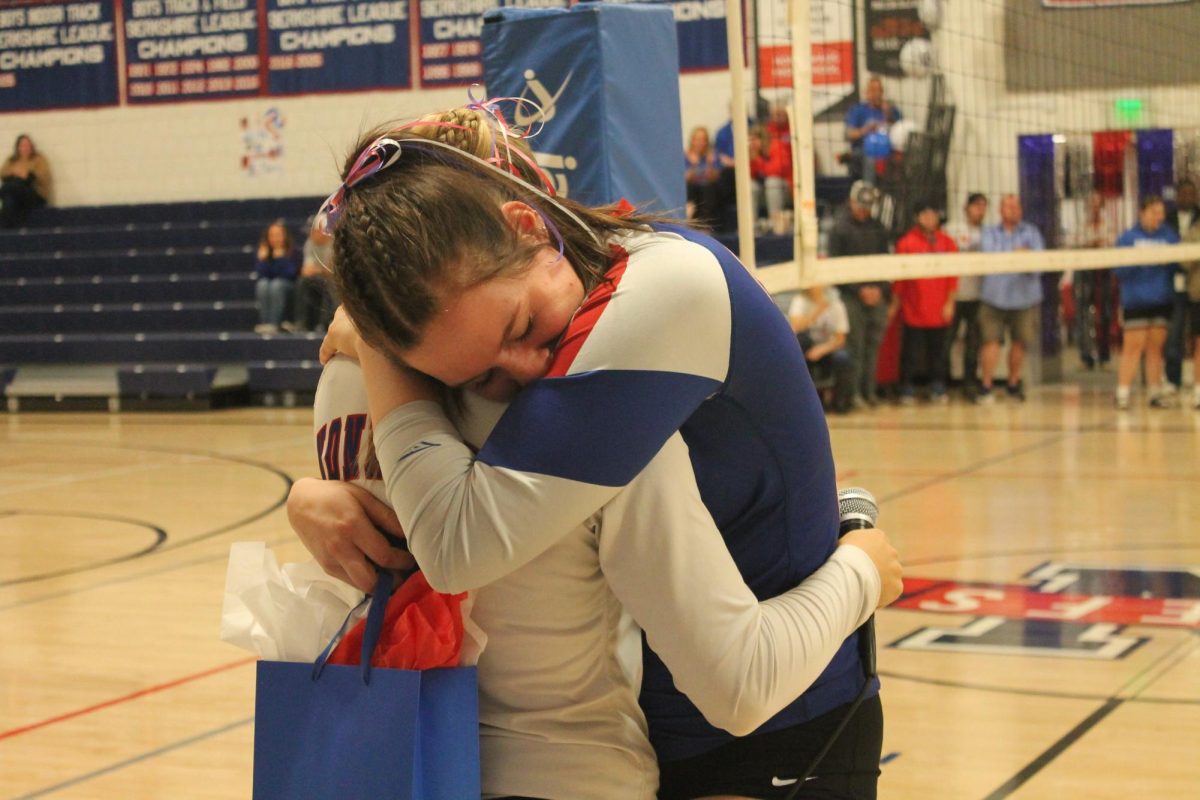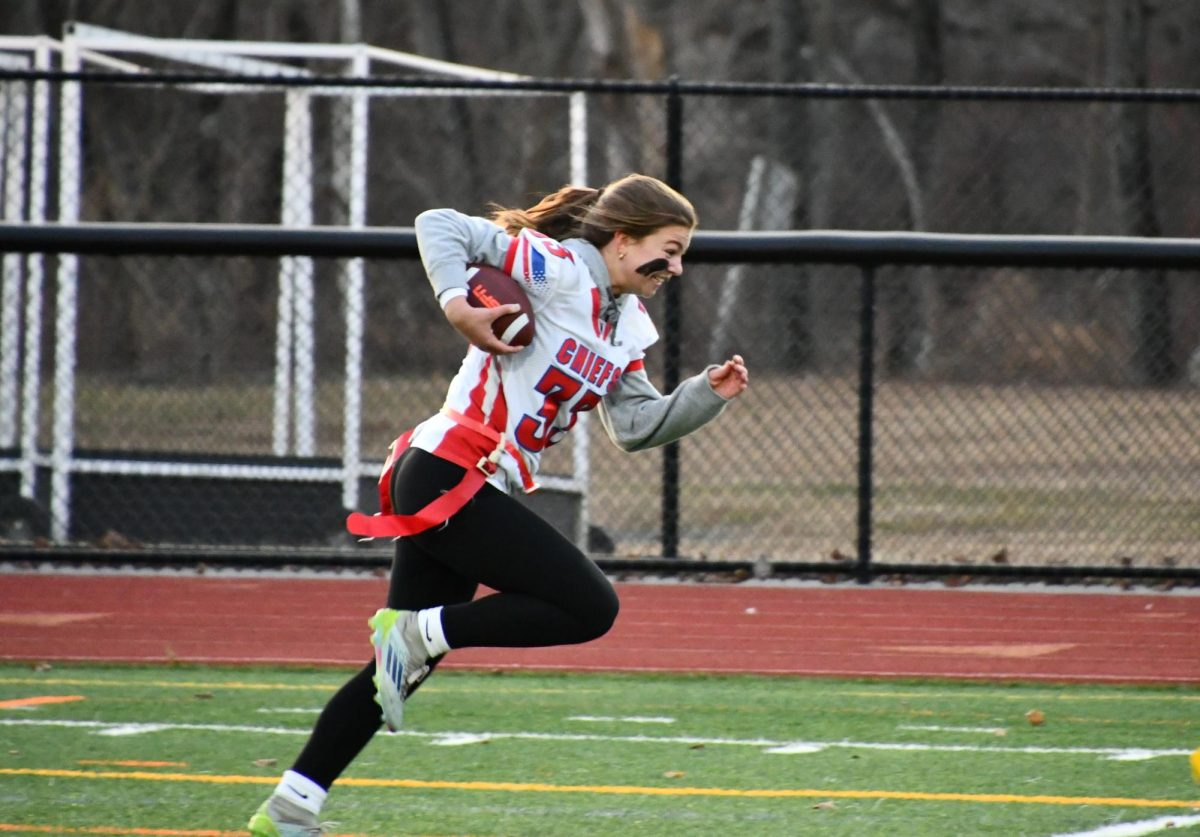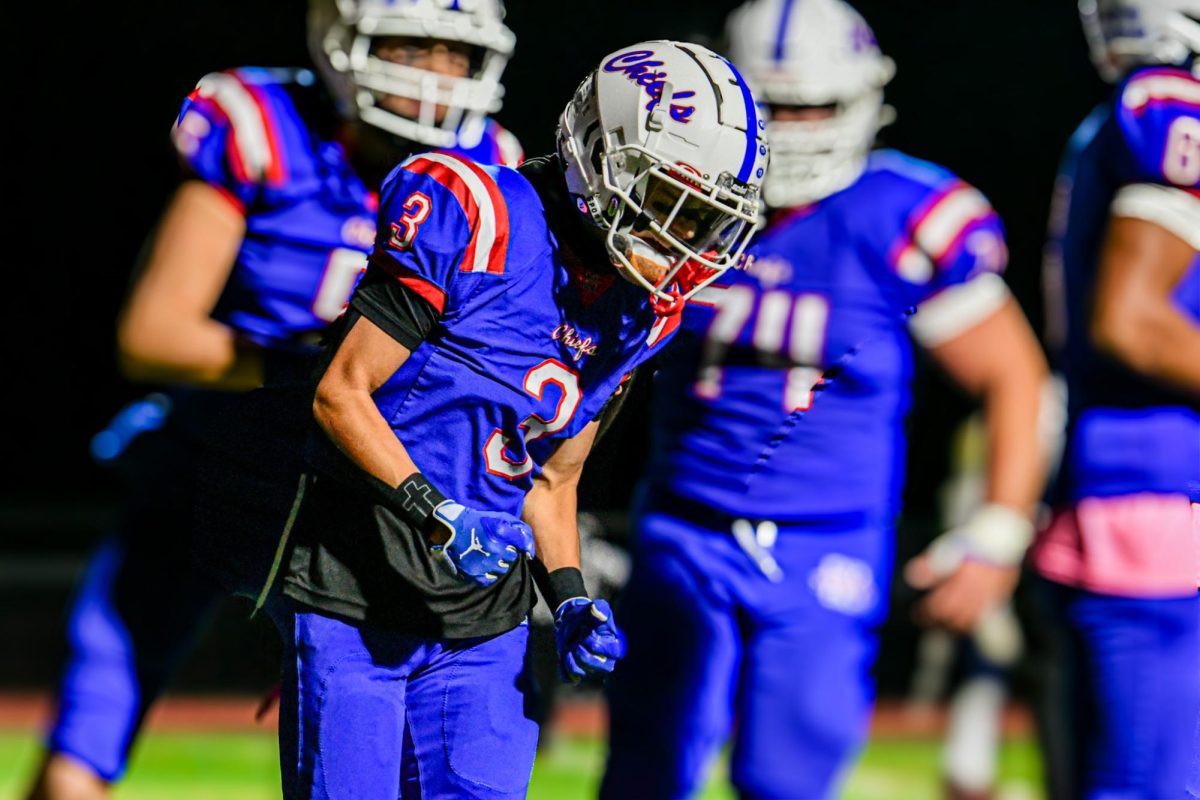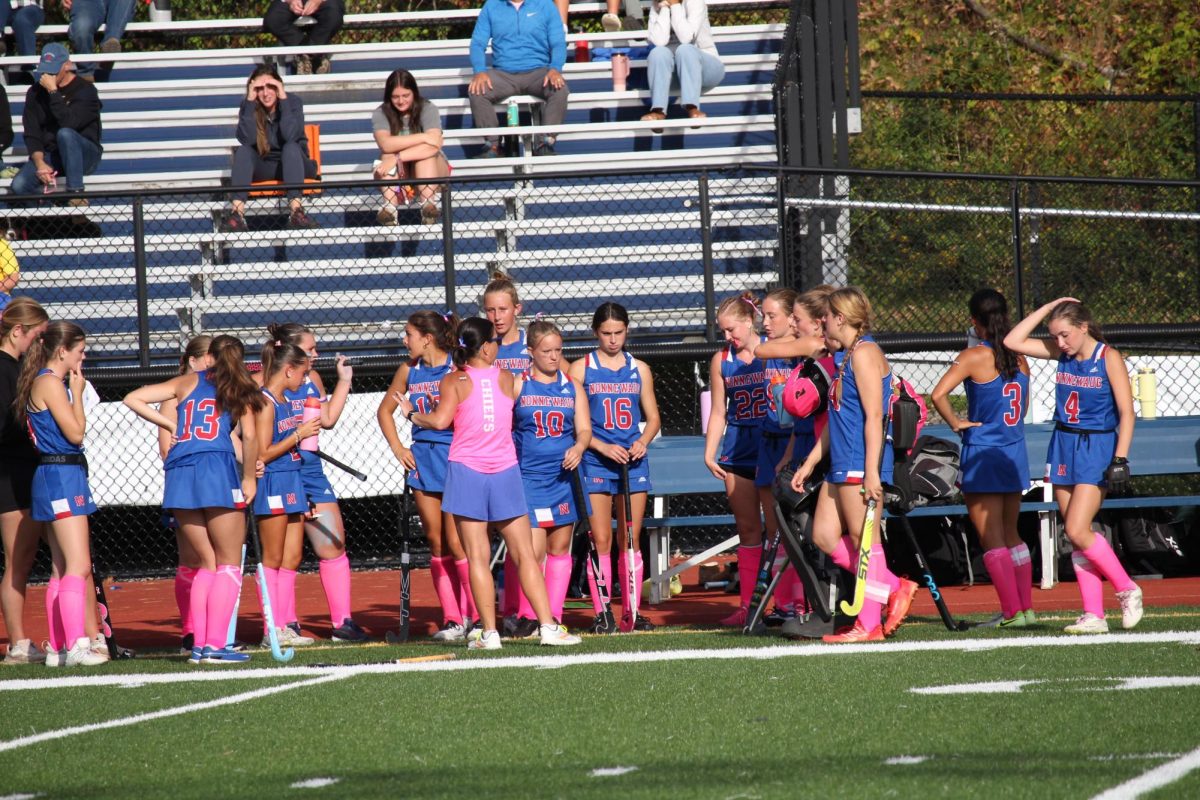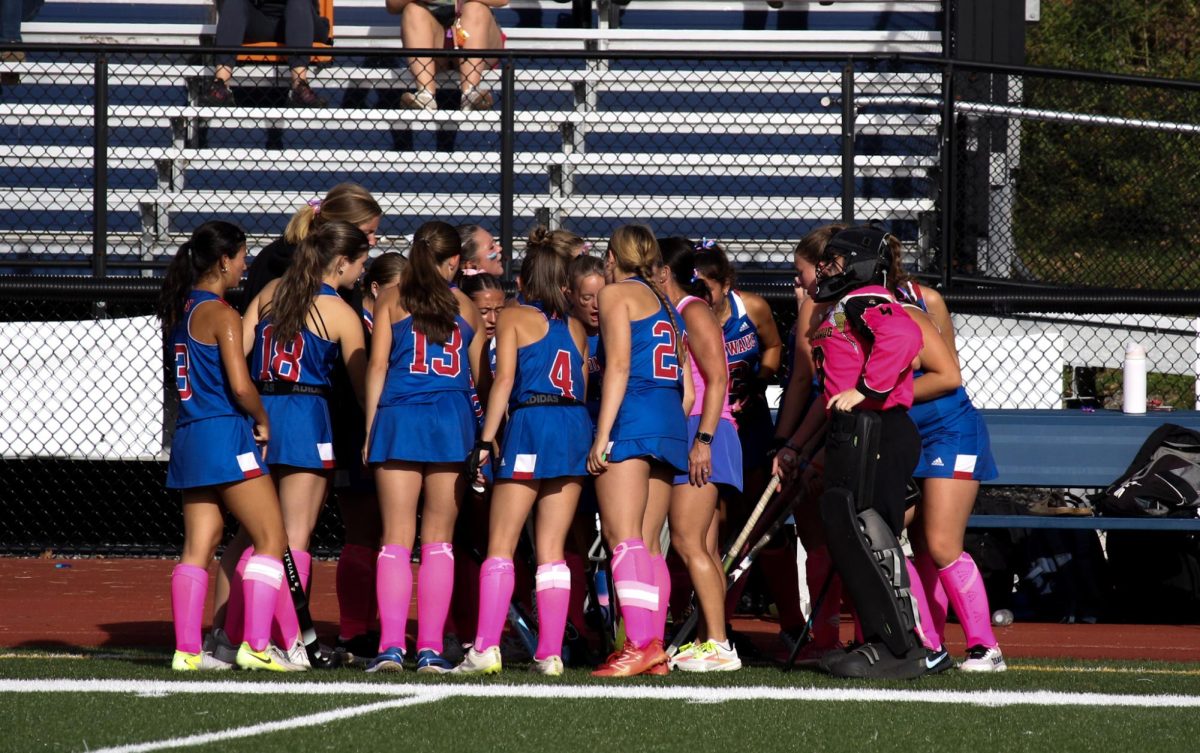WOODBURY — The last class on every Friday at Nonnewaug High School normally looks the same. All the students watch the clock, eagerly awaiting to grab their bags.
It is only when the bell finally rings that everyone rushes out the door. Parading through the hallways, everyone goes their own separate ways, whether off to the bus, or out to the field.
At Nonnewaug, some days can be chaotic, but student-athletes who like to fill out their schedule, feel the chaos almost every day.
“[I have] double practices after school sometimes and seven days a week between multiple sports and school sports. It’s kind of a lot,” says Thea Oleynikov, a Nonnewaug freshman cross country runner.
Packed schedules not only cause a crunch for time, but also a lot of stress too, and especially when students take advanced classes.
“In all honors classes, the expectation is a lot higher,” Oleynikov explains.
For some athletes, settling into a schedule can be easier as the school year continues.
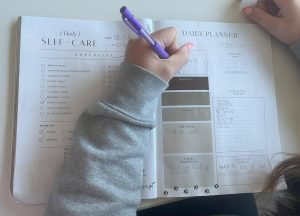
Kailey Meeker, a sophomore at Nonnewaug who participates in Nonnewaug sports teams all year around, finds some issues when starting school and sports right off the bat.
“I feel like at the beginning of the year it’s kind of hard because it’s like resetting,” says Meeker, “but once you get back into the groove of knowing what you’re doing, you can get to know your teachers and the amount of homework.”
Sports can be thrilling for many athletes, but there are many classes that seem to ask a lot from students.
Joshua Kornblut, a science teacher and soccer coach, also acknowledges that for student-athletes the expectations are lofty.
“In high school, the standards are a little higher and the coaches generally hold players to a bit of higher standards in terms of work ethic in the classroom and on the sports field,” Kornblut says. “It forces athletes to manage their time a little better.”
Time management is a key concept for success, and people find many different ways to handle a filled up schedule. One common tool is planners.
“I have a planner and it kind of helps with practice or games and/or homework, and I use it if I have like a big project that week,” Meeker explains. “I realize that I have a game [so] I know to start [schoolwork at a certain time].”
Other students like Oleynikov also utilize planning tools such as lists.
“I use a to-do list so much,” says Oleynikov. “It satisfies my needs for school … and sports.”
With many events to keep track of, it is a tall task for many students, but it comes with a season’s worth of fun memories, not to be taken for granted.
“It is a privilege to be an athlete,” says Kornblut, “and most people play a sport because they want to and enjoy it.“
Part of that privilege means upholding rules about schoolwork, a significant part of the balance.
“[The term] is student-athlete and so I think kids start to realize that it’s academics, then once you are successful there, you get to perform and you get to be an athlete,” explains Kornblut.
For many students, being an athlete is something that they have to earn, which can be hard to maintain with a demanding schedule and commitments.
“A lot of the time, their work ethic that they have on the field doesn’t just stay on the field,” Kornblut says, “and it carries them through wherever they are going in life.”



